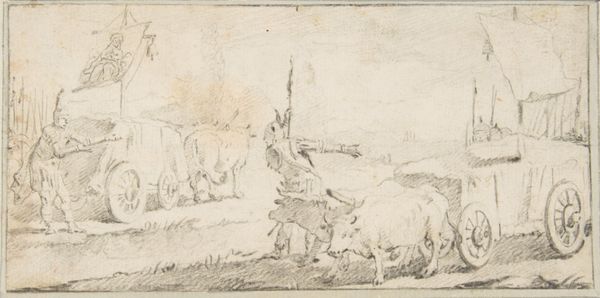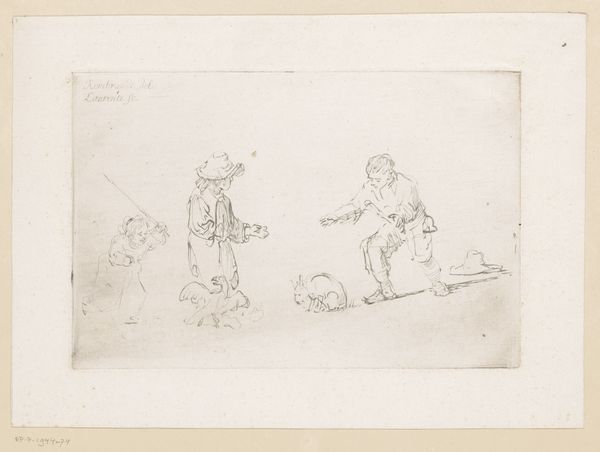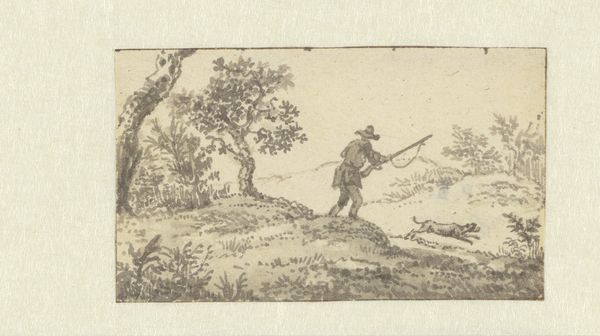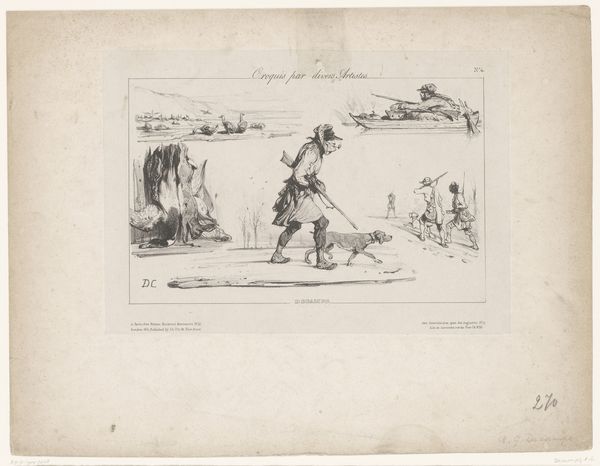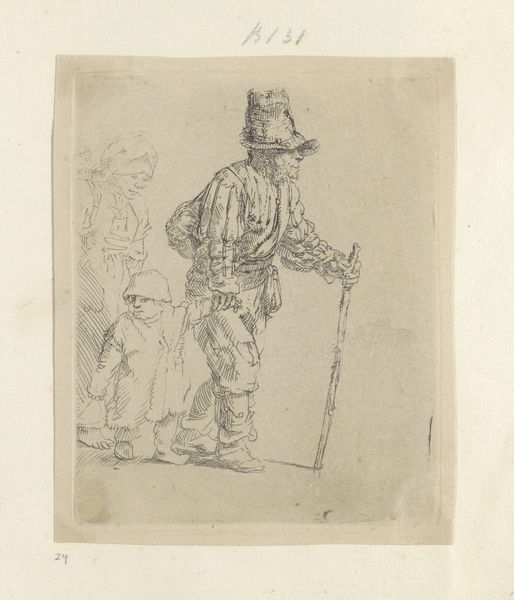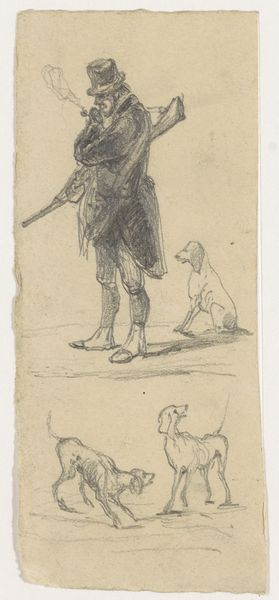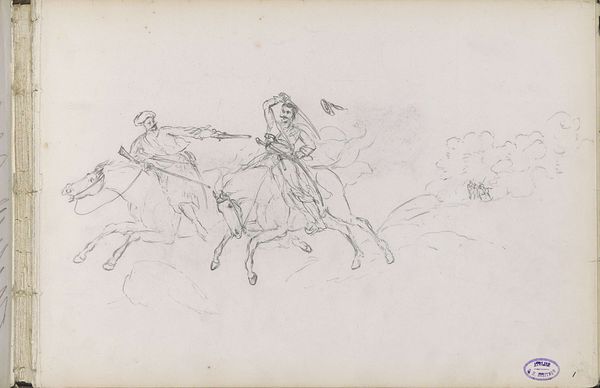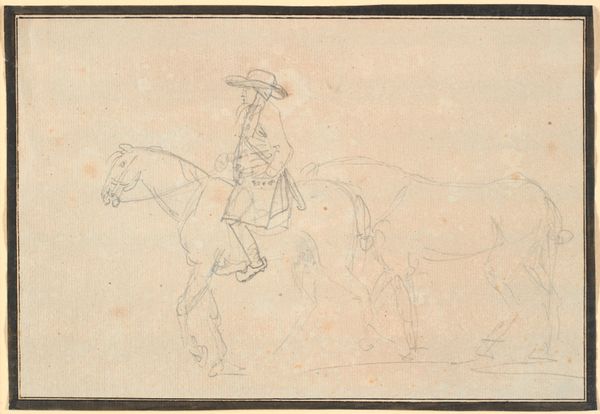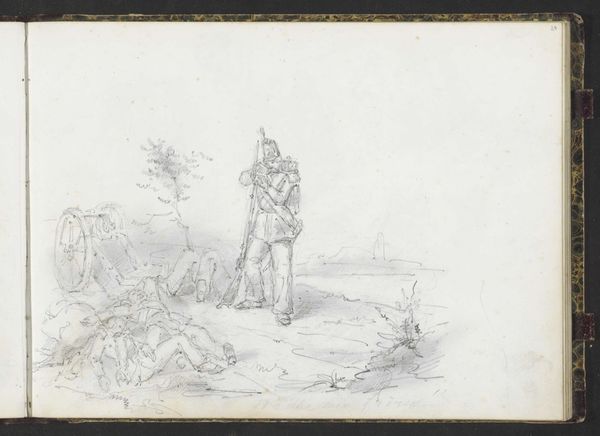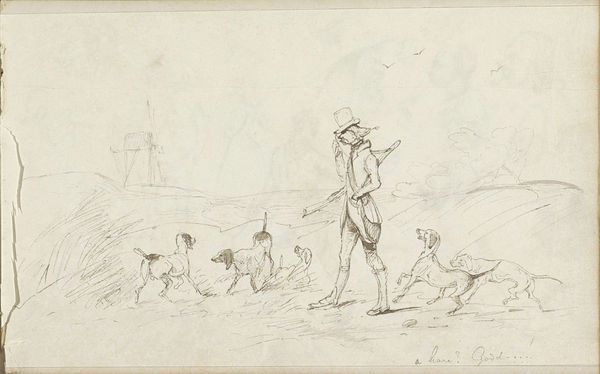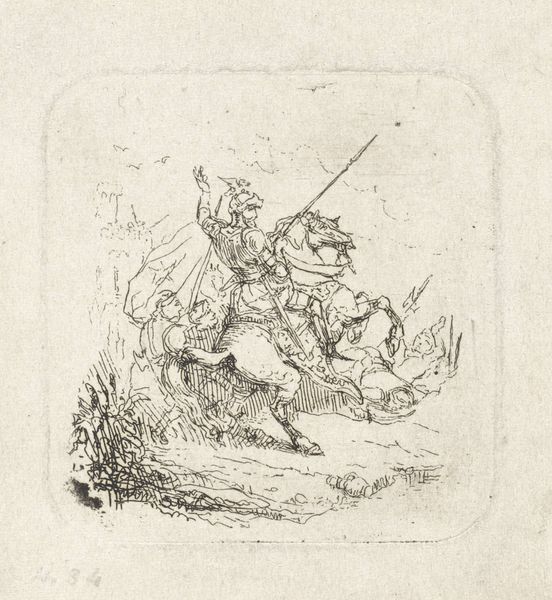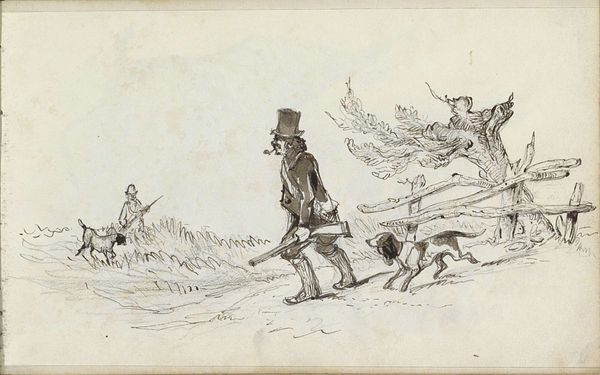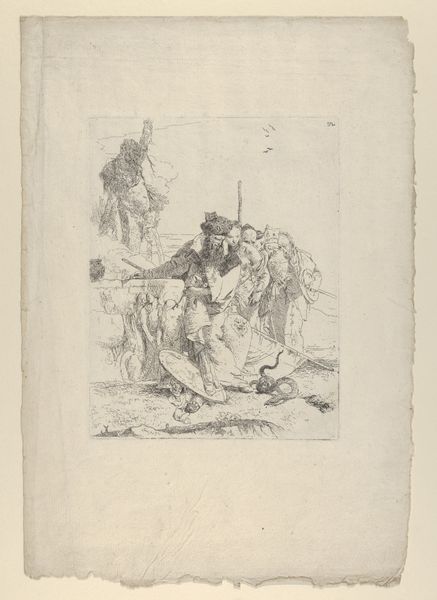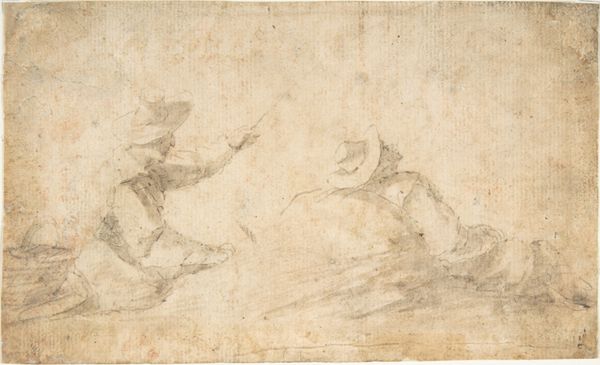
#
toned paper
#
light pencil work
#
quirky sketch
#
pencil sketch
#
personal sketchbook
#
ink drawing experimentation
#
pen-ink sketch
#
sketchbook drawing
#
watercolour illustration
#
sketchbook art
Dimensions: height 80 mm, width 135 mm
Copyright: Rijks Museum: Open Domain
Editor: So, this quirky sketch by Johannes Tavenraat, likely from somewhere between 1840 and 1880, is titled "Hunter with dogs and a hare on his back". It's a pencil drawing on toned paper. I'm struck by its candidness – it feels like a stolen moment from everyday life. What social context do you see informing this work? Curator: It's tempting to see it simply as a record of daily life, but sketches like these served a function within broader artistic and social trends. Think about the rise of naturalism and realism during that period. Artists were increasingly interested in depicting everyday subjects without idealization. Was Tavenraat simply documenting a hunter, or was he subtly commenting on social hierarchies and the role of hunting within them? Editor: That’s a great point! The hunter looks rather ordinary, not particularly wealthy or aristocratic. Did this kind of imagery have a specific audience? Curator: Possibly a growing middle class eager to see themselves reflected in art. These were also the decades of increasing urbanization, with artists romanticizing the countryside and traditions tied to the land. How does that tension between rural life and urban experience inform our understanding of this drawing? Is it pure nostalgia, or is there something more critical at play? Editor: I see it now! Perhaps there’s a subtle commentary on changing social structures, the everyman hunter replacing the aristocratic tradition. This quick sketch opens up all these questions of art and its public. Thanks for opening my eyes to this. Curator: Indeed, even seemingly simple images can offer valuable insight when viewed through a wider lens. It's a good reminder to look beyond the surface.
Comments
No comments
Be the first to comment and join the conversation on the ultimate creative platform.
